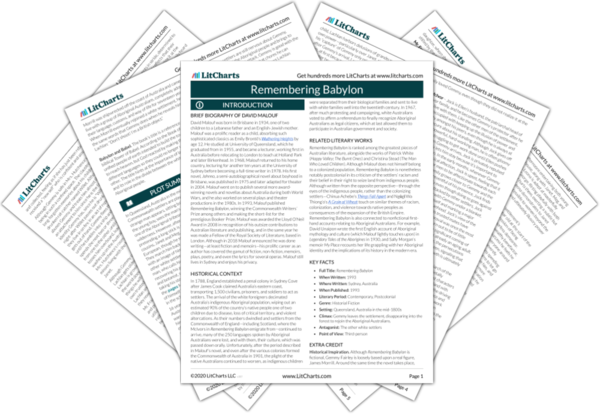Lachlan’s guilt confirms that he regrets his treatment of Gemmy and the way that he treated Gemmy first as a badge of power and later as an annoying tag-along. Tragically, there seem to be no true resolution for Gemmy himself. Despite his “naked endurance” and ability to survive, he was still ostensibly killed by white men. Within the frame of the narrative, although Gemmy has his own motivations, he functions more as a catalyst for change and growth in other characters, especially Jock and Lachlan, who seem to reach more resolution in their own character arcs than Gemmy ever does.
